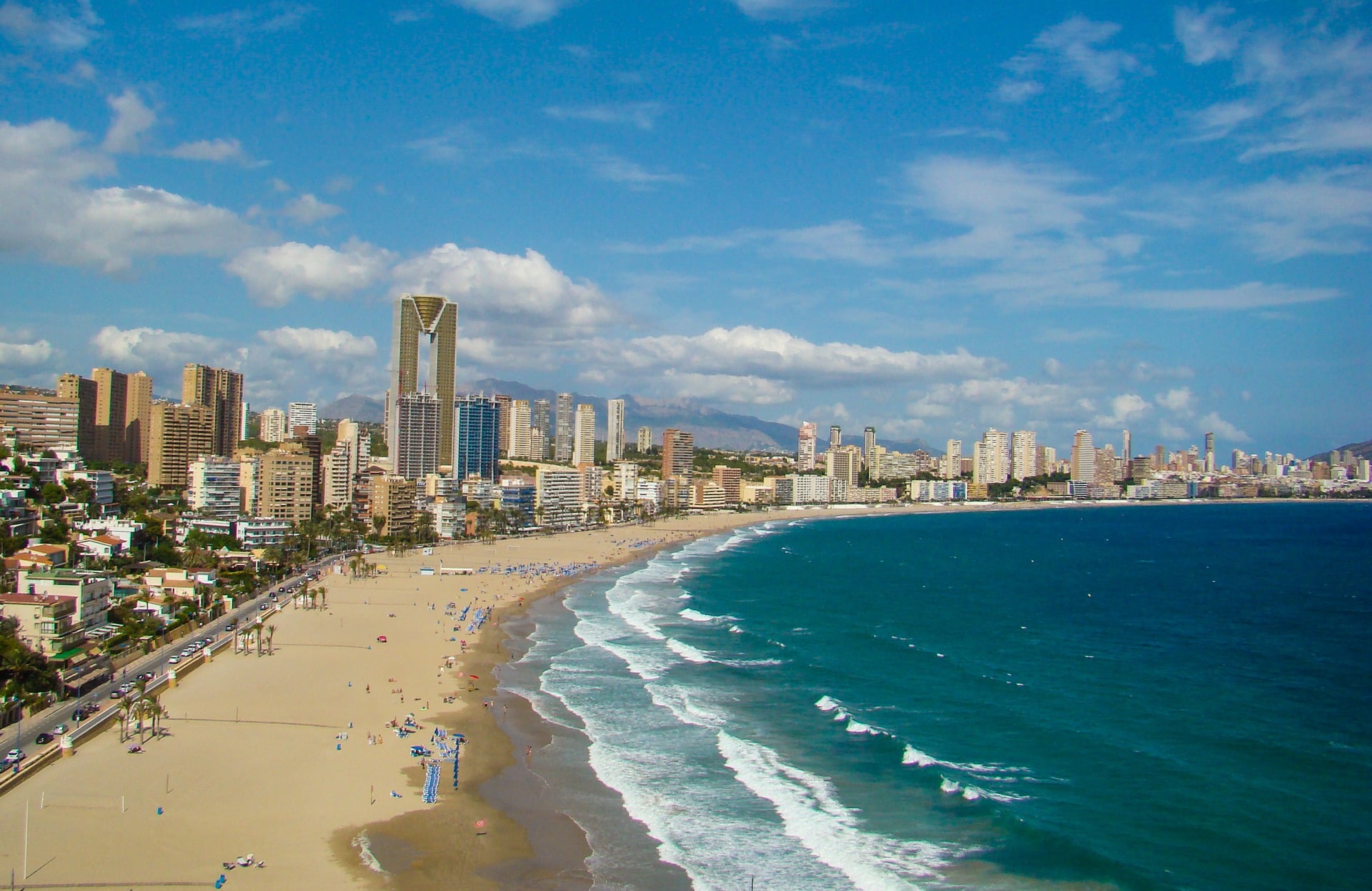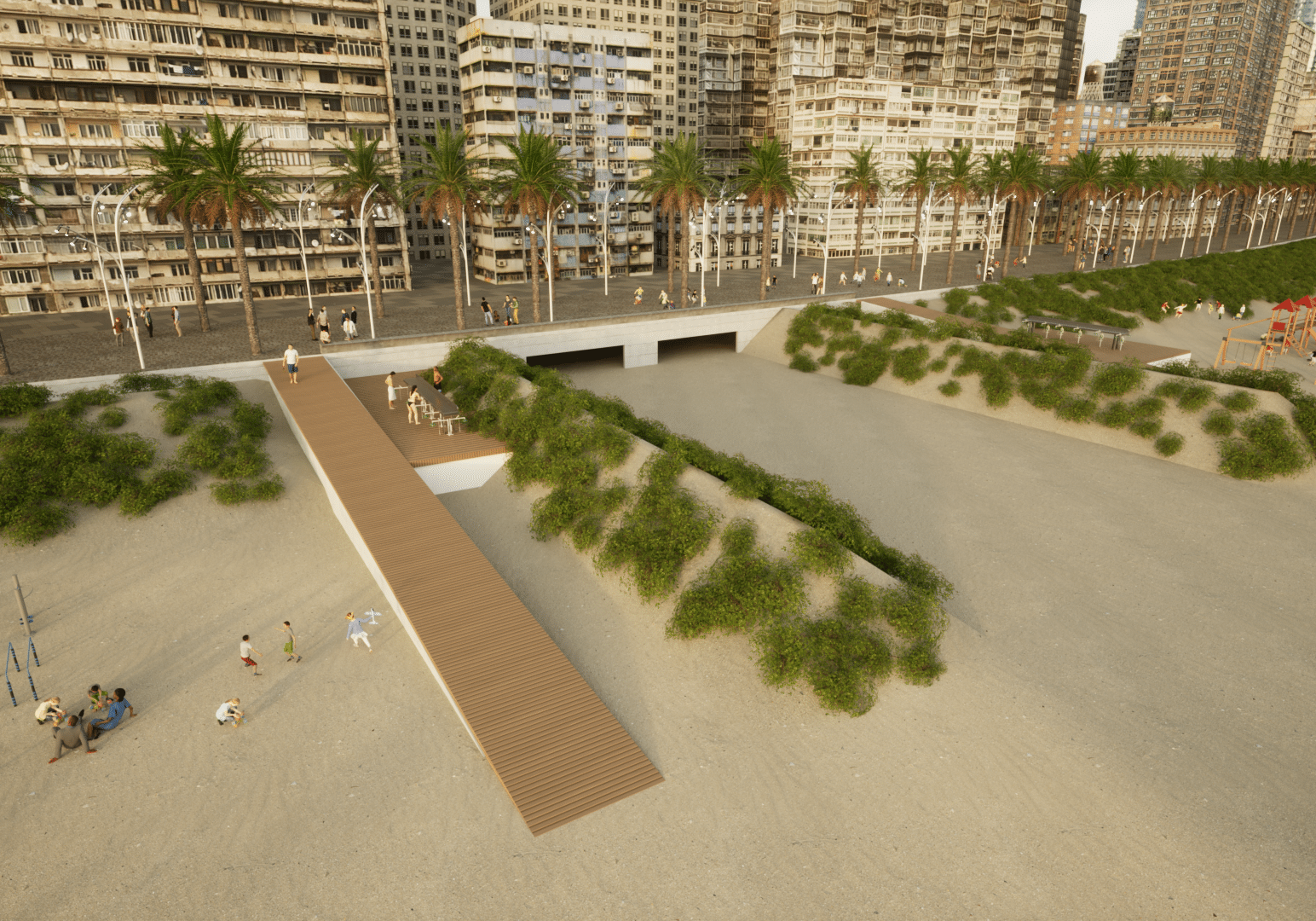Lead: University of Alicante
Context
Benidorm is a city located on the eastern coast of Spain. The city is characterized by a powerful economic activity in tourism. Currently, Benidorm represents a fundamental tourist destination for Spain, being the third city in Spain by number of hotel beds after Madrid and Barcelona and the most important tourist centre of the Spanish Mediterranean coast. Originally a small fishing village, Benidorm is a typical example of the resorts that emerged along the Mediterranean coast in the 1960s during the mass tourism boom that catered mainly to foreign tourists. Within the framework of local urban planning, the authorities planned an area of adjacent urban expansion along its shoreline that gave rise to Benidorm's distinctive image of high-density urbanism and high-rise building.
Part of the city's success is due to the two beaches included in its municipal area: Poniente Beach and Levante Beach. Both beaches are characterized by a fine-sized sediment and a unique morphology (length and width). Playa de Poniente is 3 km long and has an average width of 68 m, while Playa de Levante is 2.3 km long and has an average width of 54 m.
Both beaches are included in a closed littoral system, forming a promontory inlet. The orientation of both beaches to the south and the protection provided by the Sierra Helada massif against waves coming from the east means that the impact of storms is less than in other parts of eastern Spain. Posidonia oceanica abounds on the seabed, a marine phanerogam that forms extensive meadows on sandy bottoms.
Benidorm city has a Mediterranean climate. This climate stands out for a regime of mild temperatures in winter (10°C on average) and high temperatures in summer (25°C on average), and for a low annual rainfall, of the order of 400-450 mm. However, this precipitation tends to be concentrated on a few days a year, especially during the autumn. During this season, low-pressure systems have the potential to cause heavy rains and storm surges simultaneously, causing substantial damage to coastal infrastructures.

Challenges and risks
Planned Ecosystem Based Approaches (EBAs)

Benidorm's GeoStory
SCORE's Geostories are dynamic pages designed to showcase local activities in our CCLLs. They are regularly updated by our project team and provide the latest information for local and regional stakeholders.
Live from Benidorm
Benidorm prevé crear dunas artificiales para proteger del cambio climático sus playas
Benidorm prévoit de créer des dunes artificielles pour protéger ses plages du changement climatique
Read article (in Spanish)
Benidorm, una de las diez ciudades de Europa para testar la resiliencia climática de las costas a través el Proyecto SCORE
Benidorm, l'une des dix villes d'Europe à tester la résilience climatique des côtes dans le cadre du projet SCORE
Read article (in Spanish)
For more local news about the activities in Benidorm Coastal City Living Lab, you can visit the following links from the UA team:
The other CCLLS
SLIGO
Ireland
DUBLIN
Ireland
OEIRAS
Portugal
PROVINCE OF BARCELONA / VILLANOVA I LA GELTRÙ
Spain
BASQUE COUNTRY
Spain
GDANSK
Poland
PIRAN
Slovenia
SAMSUN
Turkey
MASSA
Italy

